Vaginal Thrush:
Symptoms and Treatments for Thrush in Women


What Causes Thrush And What Is It?
Thrush is a common opportunistic fungal infection that is caused by an overgrowth of Candida (a type of yeast that is naturally found on the body). That’s why vaginal thrush is often referred to as a “yeast infection”. Usually, Candida doesn’t cause any problems for us and it co-exists with naturally beneficial bacteria also found in the vagina. However, in certain circumstances (we’ll come back to these later), the candida can thrive, disturbing the natural balance that exists within the vagina. This leads to thrush and some uncomfortable symptoms.
Vaginal Thrush Symptoms
The most well-known (and frustrating) symptom of thrush for women is an itching/ burning sensation and irritation around the vulva (the outer part of the female genitals). The vulva may become red, inflamed and slightly swollen due to this irritation. As tempting as it may be, you should try to avoid scratching as this could potentially irritate the skin more and make the itch worse.
Another common symptom of thrush is a thick, white vaginal discharge that can resemble the consistency and texture of cottage cheese. Generally speaking, this discharge does not have an odour. If you do notice an unpleasant odour and/ or unusual discharge or bleeding, it is very unlikely that you have thrush, and other infections need to be considered.
For instance, a white/grey discharge and a “fishy” odour can indicate bacterial vaginosis – another type of vaginal infection which is caused by an overgrowth of certain naturally occurring bacteria in the vagina. If you think you may have bacterial vaginosis (BV), thrush treatments will not work as they are antifungal medications and BV is caused by bacteria. You can find more information about BV and the treatment options available on our Bacterial Vaginosis Treatment page.
With thrush, occasionally some women may experience pain or a stinging sensation when they pee. They may also experience discomfort during sex. This is because the skin around the vulva is inflamed and can be extra sensitive.

Why Do Women Develop Thrush?
Why do women get thrush? And why do some people get it more often than others? Unfortunately, there are some things that can increase the risk of developing thrush, and for a lot of people, they cannot be avoided.
Taking Antibiotics
Antibiotics kill bacteria. They do not discriminate between ‘good’ and ‘bad’ bacteria and they can kill some of the beneficial bacteria that exist in the vagina. This disturbs the delicate balance that exists in the vagina between bacteria and candida and provides the perfect opportunity for candida overgrowth and vaginal thrush.
Hormonal Changes
As we know, our hormones fluctuate over the course of our lives and during the menstrual cycle. These changes in hormone levels affect the pH (acid) level of the vagina which can encourage the overgrowth of Candida.
Unfortunately, this means that many women experience recurrent thrush during or after their period. Many others will experience thrush while pregnant or during perimenopause. It can also be a problem for those who are using hormonal treatments e.g the contraceptive pill, patch, ring, IUDs (intrauterine devices) or Hormone Replacement Therapy (HRT).
Weakened Immune System
The immune system, as well as beneficial bacteria, helps to prevent the overgrowth of Candida. Therefore, if you have a weakened immune system, you are more likely to develop thrush. Your immune system may not be working properly due to an acute illness, immunosuppressant medications, cancer treatments, such as chemotherapy, or long-term medical conditions, such as HIV.
Diabetes
Higher glucose levels in the blood make Candida more likely to thrive. Therefore, people with poorly controlled diabetes are more likely to develop recurrent and persistent thrush that does not respond well to treatment.

Immediate Thrush Relief & Thrush Treatments
As we mentioned earlier, thrush symptoms can be extremely uncomfortable so rest assured, you won’t be the first nor the last to frantically Google “immediate thrush relief”! Thrush can clear up on its own after a couple of days. Alternatively, you can try some over-the-counter creams and pessaries available from your local pharmacy. But sometimes, you might need some additional treatment to clear the infection. That’s where we come in!
Through our online prescription service, you can request prescriptions for Vaginal Thrush treatments. Here is a little bit more about the prescriptions we currently offer.
Diflucan Tablets
Diflucan tablets contain 150 mg of the antifungal medication fluconazole. This is taken as a once-off dose but occasionally, a second dose at 72 hours is needed if your symptoms have not resolved. As it is taken as a single dose, side effects are uncommon.
Daktacort Cream
Dakacort cream is a combination cream that can be used to treat vaginal thrush. This cream contains a steroid (hydrocortisone) and an antifungal medication (miconazole). This helps to manage the overgrowth of candida and also soothes irritated and inflamed external skin, helping to ease pain and itching. However, you should note that Daktacort cream will not have any effect on internal symptoms and is only for external use.
You can use this cream 3 times daily for up to one week – it’s not suitable for long-term use. If your symptoms have not resolved after this time, you should seek medical advice. It’s also important to note that this product can damage latex condoms and diaphragms, making them unreliable for pregnancy and STI prevention.
Gyno-Pevaryl Once Pessary
The Gyno-Pevearly Once Pessary is a pessary that is inserted into the vagina using an applicator. It is taken as a once-off dose and it helps treat internal symptoms. This vaginal thrush treatment contains the antifungal medication econazole. Whilst side effects are uncommon, they can include a localised irritation/ a burning sensation. If you do experience side effects, you should seek medical advice.
With this antifungal medication, it is important to be aware that it can cause damage to latex condoms and diaphragms and so, they will not provide effective protection against pregnancy and STIs.
Repeat Prescription
Genital Thrush Treatment
Order a prescription for Genital Thrush Treatment online with Webdoctor.ie! Once your request has been approved, we can send your prescription directly to your chosen pharmacy via secure Healthmail.
Other Things That You Can Do To Help Relieve Thrush Symptoms… And Help Prevent Future Infections!
The abovementioned thrush treatments get to work quickly and help to ease symptoms, but there are some other lifestyle changes that can help ease discomfort if you have vaginal thrush. In addition, making these changes can also help to prevent thrush in the future!
Caring For Your Vagina, Its pH Level And Natural Flora
Using water and an emollient (e.g. E45 cream) instead of soap to wash the affected area can help by rehydrating irritated skin. In contrast, soap can dry out and irritate the skin further. Soap should never be used to wash the vulva or used internally to clean the vagina.
Similarly, you should not use douches, deodorants or “feminine washes”. These products upset the natural pH level of the vagina and remove beneficial bacteria and candida. That means that using these products can cause vaginal thrush and bacterial vaginosis. Vaginas are wonderful as they are self-cleaning and they are meant to have a natural odour! However, if you are concerned about unusual discharge or odour, you should speak to your GP.
Making Sure Your Vagina Can Breathe
Candida thrives in warm, moist conditions so make sure to dry yourself properly after washing. We recommend wearing cotton underwear as it allows the skin to breathe. You should also try to avoid wearing underwear to bed. Try to limit how often you wear tight clothing, such as tights, and avoid them completely while you have symptoms of thrush.
Avoiding Sex Until Symptoms Clear Up
As previously mentioned, the skin of the vulva can become quite inflamed and irritated when you have thrush, therefore it’s best to avoid sex until your symptoms have cleared up. Thrush is not classified as an STI and it is not generally considered to be contagious. It is uncommon for it to be passed between partners during sex but sex can trigger vaginal thrush and prolong symptoms.
If you do choose to have sex while receiving treatment for thrush, you will need to be aware that many antifungal medications will damage latex condoms and diaphragms. This means that they will not work effectively to protect you against pregnancy or STIs.
How To Order Prescription for Thrush Treatment
Requesting a prescription for Thrush Treatment is extremely easy with Webdoctor.ie. All you need to do is fill in a secure online questionnaire to describe your symptoms. Then, one of our Irish-registered doctors will review your request to make sure this treatment is suitable for you. Once approved, we’ll send your prescription to an Irish pharmacy of your choice!
You can find thrush treatments, such as Canesten cream and pessaries, in your local pharmacy without a prescription. You should try these first as the majority of yeast infections can be cured using these treatments. However, if you still have symptoms after trying these over-the-counter products, our online prescription service is available to provide you with a suitable prescription for treatment.
How It Works
Through an online medical questionnaire, face-to-face video consultation or home health test, our online doctors will review your case and prescribe the best treatment for you.

Step 1
Online Questionnaire

Step 2
Medical Review
